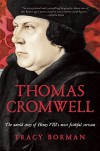SusannaG - Confessions of a Crazy Cat Lady
Just another GR refugee. Other than that, I had a stroke in 2004, and read almost anything I can get my hands on, though I have a particular weakness for history, mystery, and historical fiction.
Currently reading
Empire of Liberty

Solid examination of how the United States changed greatly from the signing of the Constitution in 1789, through the peace with Britain in 1815.
The country was more religious and evangelical, more commercially driven, more litigious, and more divided over slavery in 1815 than it was in 1789. Instead of being mentally oriented east towards Europe, Americans looked west over the rest of the continent (American and otherwise) with covetous eyes. The size of the country doubled in the middle of the period, thanks to Jefferson's Louisiana Purchase.
And the war which put an end to the period, the War of 1812, is very probably the strangest war the U.S. has ever fought. The same congress and president who were gung-ho for war (in the name of our national honor) refused to increase the size of army or navy, because standing armies are bad, m'kay? The merchant navy and the militia could handle the world's largest navy and invade Canada. Also embargoes of foreign trade fix everything. It's astounding we managed to pull a draw out of it.
This book is a part of the Oxford History of the U.S., which is excellent, and recommended as a series. (The next two books in the series, What Hath God Wrought and Battle Cry of Freedom, which take us through the end of the Civil War, are both excellent. Battle Cry of Freedom is the best single-volume history of the U.S. Civil War that I've seen, hands down.)
 14
14















